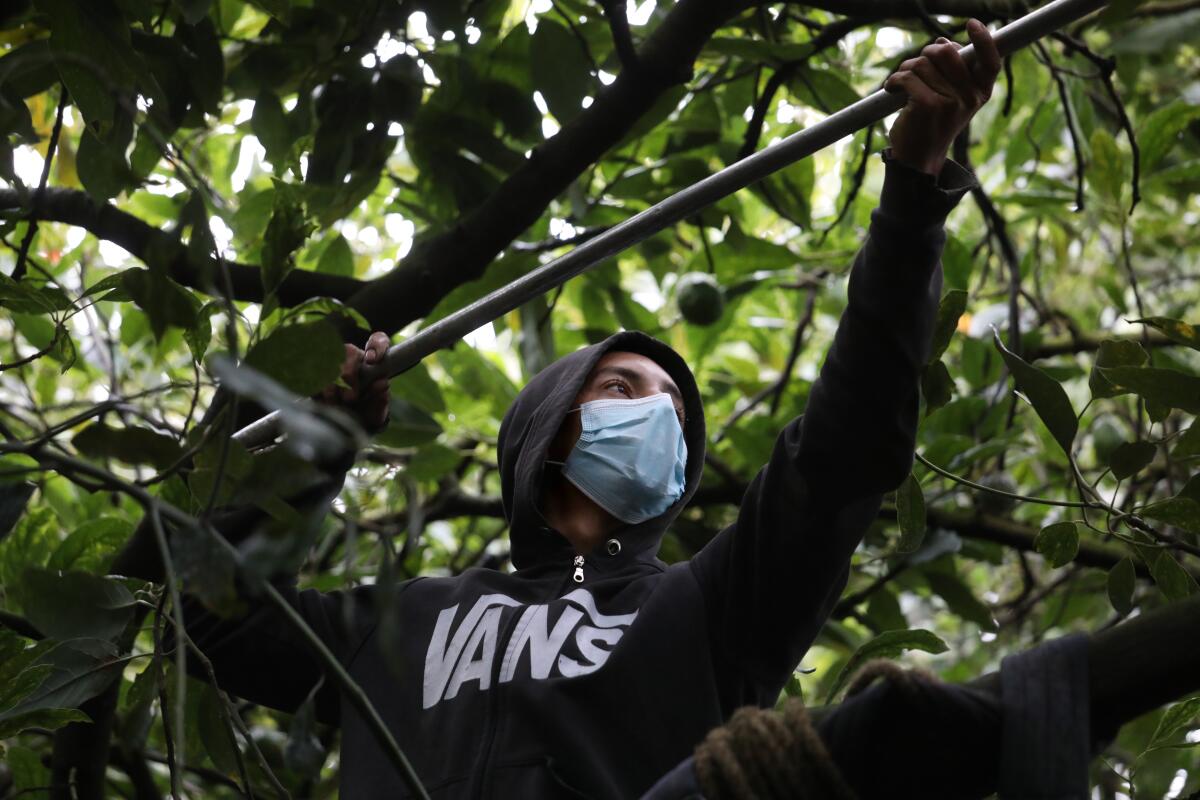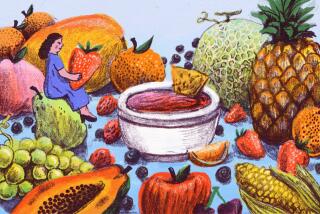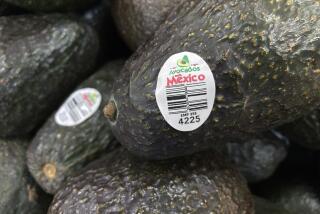Editorial: There’s blood in your guacamole

Let’s now consider the winter avocado, once unknown in Southern California supermarkets but ubiquitous these days, thanks to our insatiable hunger for buttery golden-green flesh.
Although native to tropical Mexico and Central America, avocados became L.A.’s symbolic gift to the world after a man named Rudolph Hass sprouted a round pit in his La Habra Heights grove and some years later discovered the result: a fruit with odd black skin that was tough enough to handle shipping and storage. Until then (the mid-1920s), avocados had been for backyard hobbyists and entrepreneurs who experimented with many varieties of the exotic fruit, generally thin-skinned and green, which came ripe at various times of the year. But the Hass avocado caught on like no other. It now accounts for about 95% of California’s avocado exports.
And now a good chunk of our imports as well, especially between August and April. Hass avocados don’t ripen in the winter here, at least not in supermarket numbers. But they do in their native Mexico. That meant nothing in an era of high import tariffs, but after the North American Free Trade Agreement took effect in 1994 and an import ban based on fear of pests was lifted in 1997, Mexican Hass (or Hass-type) avocados filled produce bins. They are tasty and the cost is low.
Or is it? Violent drug cartels that terrorize innocent Mexicans have extended their reach over legal crops such as avocados. In a Nov. 21 story, The Times’ Kate Linthicum reported on the diversification of Mexico’s criminal gangs into avocado production and sales. Cartels have long demanded protection payments. Now, as Linthicum reports, they have begun logging protected hillsides and woodlands to plant their own groves and horn in on the lucrative avocado business. Rival gangs target each other in deadly shootouts as gruesome and as terrorizing as any drug violence.
They are fueled by U.S. avocado hunger.
It was once the case that individual Americans could hold themselves aloof from the consequences of their nation’s appetites by simply saying “no” to things that were illegal — to marijuana, cocaine and other illicit (or once-illicit) substances that flood across the border. But now, even avocados? Must murder and extortion be the price of New Year’s morning avocado toast or fresh Super Bowl guacamole?
Surely there must be a way to sever the link.
Should we eat guacamole made from squash and cooking oil? Apparently we already do, even without knowing it. More restaurants are apparently fighting rising avocado costs this way, usually without letting their diners in on the scam. But that can quench only so much avocado lust.
Maybe a person could boycott Mexican-grown avocados and feel a bit virtuous. But that does little to lessen the continuing trade or its consequences. And even if we all joined the boycott, would we be doing anything other than driving the last nail into the coffin of the growers struggling against the cartels?
We could grow more of our own, including winter varieties that look and taste like the Hass. (Sir Prize, anyone?) Or shop the more tender locally grown varieties (Pinkerton, perhaps).
Horticultural geniuses are working to satiate our avocado hunger with new tree varieties that can withstand frost and might therefore be grown in the winter chill of the San Joaquin Valley, where almonds are currently king. But unlike almonds, avocado trees don’t go dormant in winter and require costly year-round care. Almond trees already suck up much of the water needed to sustain California rivers and migrating fish. How much more might be required by frost-hardy avocado groves?
Meanwhile, we’re demanding (and consuming) winter grapes from Peru and winter apricots from Chile, nations where agriculture’s orientation toward the U.S. market has been good for their developing economies but carries steep consequences for the environment.
There is no consequence-free choice. Responsible consumption requires knowing the true costs (social and environmental, as well as economic) of the food we eat. It also requires responsible citizenship, so that savvy consumers can press their representatives to ensure that trade agreements don’t promote cartel violence and environmental degradation. A perfect avocado may be bliss, but ignorance never is.
More to Read
A cure for the common opinion
Get thought-provoking perspectives with our weekly newsletter.
You may occasionally receive promotional content from the Los Angeles Times.










